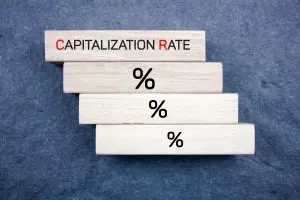How much do real estate agents make? That is one of the most asked questions I get from people considering getting into the business. Admittedly, there is another group that poses the question rhetorically. No matter the answer, it is too much in their eyes. Well, let’s forget about that group (for now).
Let’s begin by describing a typical residential transaction in southern California. The median selling price is approximately $850,000. The listing office will receive a commission, and the Selling Office will receive a separate commission. The agents on each side will negotiate their commission. In the past, the total commission was negotiated with the Listing Office, which split that commission with the Selling Office. That process has recently changed.
Setting aside that discussion, each side of the transaction will likely be paid a commission equal to 2%-3%. I will use 2.5% of the selling price for our discussion.
Some deductions will be made to calculate the agent’s net commission. We will first look at the calculations for Traditional Brokerage.
1. Traditional Brokerage.
The net commission paid to the selling agent is calculated as follows:
Total commission: $850,000 X 2.5% $21,250
Less:
Franchise fee: $1,275
Broker Split (40%of $21,250 $8,500
Balance $11,475
Office Trainer (20%) $2,295
E&O Insurance $50
TC $400
Net to Agent: $8,730

A. Franchise Fee.
Traditional brokerages are often nationally branded. Common brands include Coldwell Banker, Century 21, Keller Williams, and Berkshire Hathaway Home Services. Franchise fees vary between brands; however, the fee will likely be between 4%-6% of the total commission, and that fee is deducted “off the “top.” For instance, if the franchise fee is 6% of the commission, and the total commission paid on a transaction is $21,250, the franchise fee will be $1,275. That fee is deducted from the total commission before the splits are calculated.
B. What is the typical commission split for a new agent?
That is probably the second most asked question by new agents. The split to the new agent is between 60% and 65% in my area. Let’s assume the agent’s split is 60% (to be generous). It’s not a bad piece of change…but the devil may be in the details.
C. Fee split with the office manager/trainer?
In many offices, a new agent may be required to work with an experienced agent (trainer or manager) on their first couple of transactions. That person will get a split of the commission. It could be as much as 20%-30% of the agent’s commission. I used 20% in the example.
D. Errors and Omissions (E&O) insurance.
A broker will likely carry E&O insurance. A portion of the premium will be passed to the agent. A typical charge is $50/closing.
E. Transaction Coordinator (TC).
In most offices, a person is responsible for ensuring that each file complies with the governing Department of Real Estate requirements. In my area, a TC earns $400+ per file.
F. Taxes.
I suppose the only thing left to mention is taxes. Let’s leave that for another day.
Additional fees could apply for using the copy machine, administrative fees, training fees, etc. Again, it’s recommended that the broker clarify all these items upfront before signing any contract.
2. Traditional Brokerages (not nationally branded).
The nice thing about working in a traditional office that is not nationally branded is there is no franchise fee. That is the good news. The bad news is that there may be a similar fee. In some offices, the broker will charge a marketing fee. It is a fee to reimburse the brokerage for monies spent on marketing the office (as opposed to a specific agent). Again, a 6% fee is not unusual. Again, check with the broker.
3. 100% Commission Offices.
Brokerages that offer a 100% Commission option are relatively new to the real estate industry. The significant advantage is the reduction in overhead, which allows the brokerage to pass the savings on to the agents.
There are two types of 100% commission offices. One type is an office offering an office to agents willing to pay a desk fee each month. It is like an executive suite operation. At these offices, the agents pay for their desk fees and may also be required to pay for administrative services such as using the copy machine. Those fees may range from $200 to $2,000 per month.
This arrangement may not be suitable for new agents. If an agent does not close a transaction during the month, all the desk fees still need to be paid.
There is a slightly different version of a 100% office. At these offices, the agent is on a 70/30 split (for instance) until they have closed transactions that resulted in $30,000 (again, for example) of commissions paid to the office. Once that level has been reached, the agent’s future commissions are handled like the 100% commission office described above.
4. How Much Does the Average Agent Earn in a Year?
Well, there is no easy answer. I will present my anecdotal experience as a real estate broker and instructor. My experience with average incomes significantly differs from the numbers on many websites.
There is one statistic that certainly is very troubling about the industry. The real estate agent dropout rate is about 90%. In other words, out of all the individuals who get their real estate license, 90% are not in the business after five years. That’s more than a little discouraging. The reasons range from the lack of funds to live on to not realizing how difficult it is to be successful in the field. But again, that number aligns with my experience as a broker. Other issues need to be clarified.
Of all the new agents that come through my front door looking for a job as an agent, very few aspire to make real estate sales a career. The vast majority are looking for a part-time gig to earn extra cash, and they are unwilling to give that up if they do have a full-time job. Speaking as a broker, I am OK with that. It requires that the business adapts to that expectation.
Let me reiterate one point: Real estate agents are paid on a commission basis. They earn nothing until a transaction closes. This point needs to be emphasized because many websites report agents’ average salaries; however, that is incorrect. There is no salary or guaranteed income.
In my office, less than 10% of the agents were full-time. The full-time agents made $70,000 to $80,000 per year. During good times, a few agents made $200k+. One agent had a commission income of close to $1 million. I want to emphasize again… that it was only when business was good.
The point is that atmospheric incomes are rare. It should also be noted that those agents typically spend $10K to $20K monthly on advertising. Most also have at least one assistant (that they pay) who typically receives a percentage of the agent’s total commission income. Granted, they still earn a bundle, but it is never easy.
The bottom line is that I cannot predict what a particular agent will earn in a given year. It will likely be somewhere between $30K and $1 million per year (assuming they are not among the 90% that dropped out).
I do not want to end this article as a “Debbie Downer.” I’ve been in real estate for over 40 years and wouldn’t do anything else. The business provided a good living. But it was never easy. After the first few years, a 100% commission job was no longer stressful. The longer I was in the business, things got easier. It was always difficult, but that was expected. It’s never easy to make well into the six figures.
If I had to name one quality that top producers have, it would be their ability to be easily trusted. If you desire to succeed, love meeting new people daily, and are easily trusted, a real estate career may be right for you.






